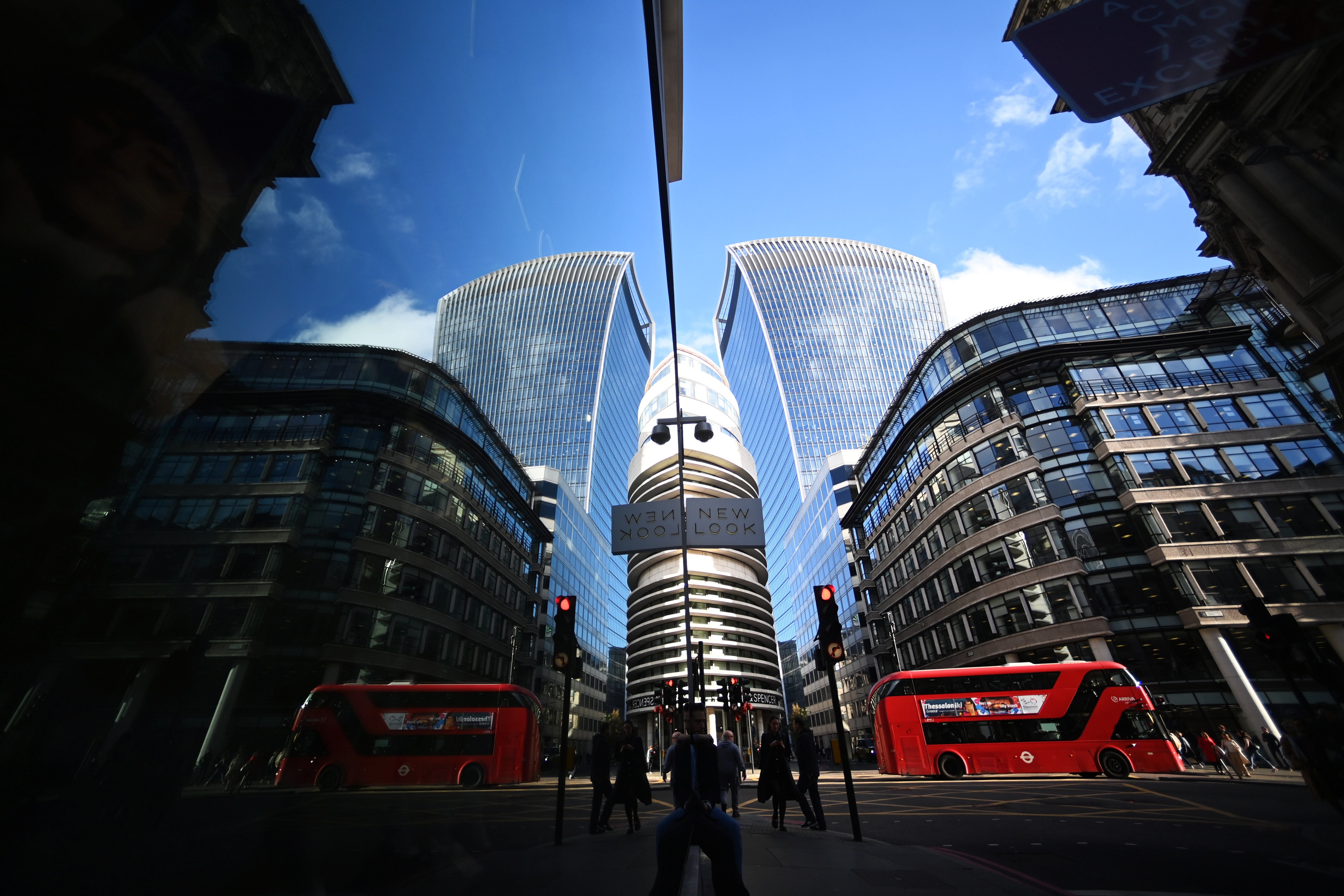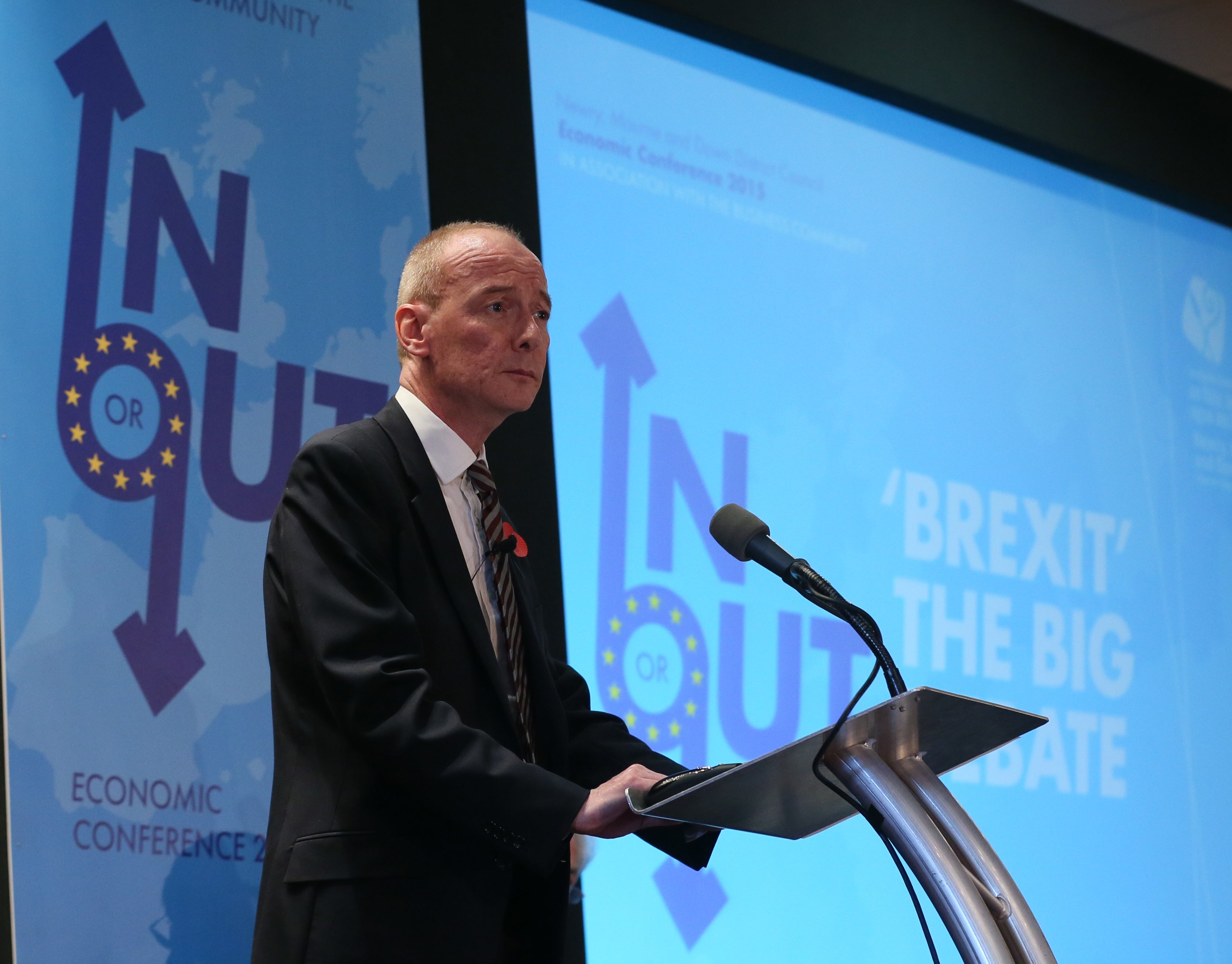UK’s economic downturn slowed slightly in November, new figures show
The figures showed that manufacturing output had helped lift the index slightly from its recent lows

The UK's economic downturn slowed in November as private sector activity picked up slightly from its previous 21-month low, new figures suggest.
The influential S&P Global/CIPS flash UK composite purchasing managers index (PMI) showed a reading of 48.3 in October, compared with 48.2 a month earlier.
Any score below 50 is considered a contraction for the economy. The index has now scored lower than 50 for four months in a row.
The figures - based on a preliminary reading of the data - showed that manufacturing output had helped lift the index slightly from its recent lows.
The revision comes after new forecasts suggest Britain will rank bottom of the growth league table for major economies for the next two years in succession.
The finding from the Organisation for Economic Co-operation and Development (OECD) came as prime minister Rishi Sunak warned his cabinet of a bleak winter ahead, due to soaring inflation, strike threats and spiralling NHS waiting lists.
Chris Williamson, chief business economist at S&P, said: “A further steep fall in business activity in November adds to growing signs that the UK is in recession, with GDP likely to fall for a second consecutive quarter in the closing months of 2022.
“If pandemic lockdown months are excluded, the PMI for the fourth quarter so far is signalling the steepest economic contraction since the height of the global financial crisis in the first quarter of 2009, consistent with the economy contracting at a quarterly rate of 0.4 per cent.”
But worse is yet to come, Mr Williamson warned, with the downturn likely deepening in the new year. The number of new orders that businesses received during the month fell to a nearly two-year low.

This was driven in part by a reduction in new business from abroad, which dented November’s order books, especially for the manufacturing sector.
Companies said Brexit and a weak global economy were weighing on their exports, as the orders that manufacturers shipped to foreign customers dropped by the most since May 2020.
For providers, the problems were slightly offset as the falling value of the pound against the dollar boosted orders from the United States.
CIPS chief economist John Glen said: “The survey pointed to some deeply concerning developments such as the quickest fall in new orders since January 2021 and the fastest decline in manufacturing export orders since 2009 outside the pandemic years.
“The Covid veil, now almost completely lifted, has revealed the challenges still faced by exporters struggling with customs and paperwork challenges and other Brexit constraints putting off overseas customers.”
Britain’s prospects were sharply downgraded by the OECD, which forecast GDP will shrink by 0.4 per cent in 2023 and grow by just 0.2 per cent in 2024. As recently as September, it was expecting the UK economy to flatline next year.
It also said that the UK was vulnerable to blackouts over the coming months, warning: “A particularly cold winter could risk supply disruptions, exposing the economy to rolling power cuts.”

Labour Treasury spokesperson Pat McFadden said the figures showed the UK was the only one of the OECD’s 38 member-states whose economy was not expected to return to pre-Covid levels by 2024.
The twice-yearly economic outlook report showed the UK lagging behind every G7 country in 2023 and 2024, while its GDP forecast was worse than any member of the larger G20 group apart from Sweden and sanction-hit Russia, whose economy was predicted to slump by 5.6 per cent next year.
“Today’s figures from the OECD are yet more evidence of the Tories’ 12 years of economic failure,” said Mr McFadden.
“This is the Tory doom loop. A low growth spiral leading to higher taxes, lower investment, squeezed wages and poor public services. And they have no plan to get us out of it.”
The OECD blamed labour shortages and “untargeted” energy support for painful inflation in the UK, forecast to peak at the end of this year around its current level of 11.1 per cent and remain above 9 per cent into early 2023, before easing to 4.5 per cent by the end of next year and 2.7 per cent in 2024.






Join our commenting forum
Join thought-provoking conversations, follow other Independent readers and see their replies
Comments